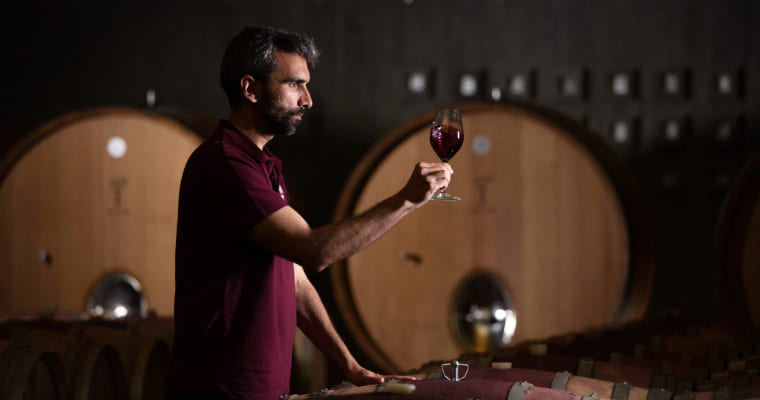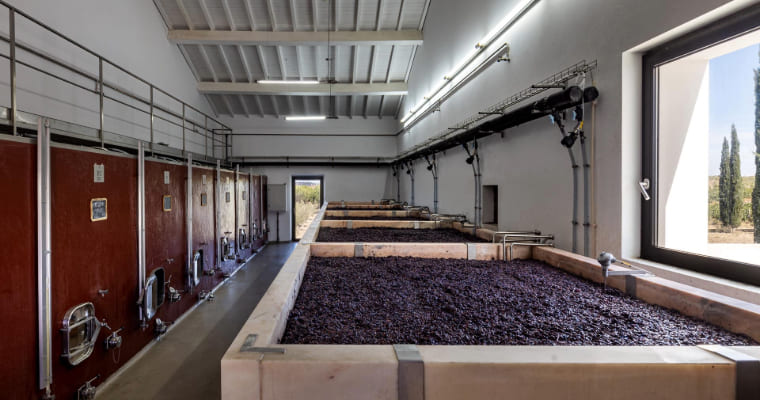Super Early Bird Ends
October 31, 2024
Judging
Date
May 19, 2025
Winners Announcement
June 10, 2025

In the wake of the pandemic, a remarkable shift has occurred in the travel landscape. Constrained to their homes during lockdowns, people now seek unique, experience-driven travel options that make the most of their time and resources. One area of tourism that has capitalized on this renewed thirst for adventure is wine tourism, an increasingly popular choice for younger travelers. While overall wine sales may be at a low point, wine tourism is soaring, with Millennials and Gen Z embracing vineyard experiences that combine the joy of discovery, connection, and storytelling.
For younger generations, wine tourism represents far more than a trip to a vineyard; it’s a multi-layered experience that often includes accommodations, tastings, hands-on activities, and education on local winemaking traditions. Wine tourism provides everything a normal vacation would, often at a lower cost, considering various wineries or resorts offer a multitude of experience based packages. For many, a visit to the vineyard becomes a memorable journey as they connect with local culture, nature, and, of course, the wine itself.
Wineries worldwide are adapting to meet this growing demand by creating packages that blend local tradition with immersive activities. Portugal, one among the top 10 destinations for wine tourism according to The Portugal News, offers some of the most breahtaking scenic spots at renowned wine regions like Douro Valley, Alentejo and Vinho Verde along with the affordable prices per bottle. Torre de Palma Wine Hotel, in Alentejo, Portugal, is one such establishment that has embraced wine tourism as an essential part of its offering. Luísa Rebelo, General Manager at Torre de Palma, explains the appeal of their approach: “Each visit and tasting at Torre de Palma winery is guided by one of our winemaker team members. They share their knowledge and passion for Portuguese wines, bringing to life the country’s rich wine heritage with its 14 different wine regions and more than 200 native grape varieties.”

Image Credits: Torre de Palma Wine Hotel
Beyond tasting and touring, Rebelo’s team provides visitors with a chance to dive into local wine-making traditions, including grape blending and even participating in the ancient technique of foot-treading during harvest. This hands-on engagement allows younger visitors to feel like winemakers for a day, creating lasting memories that go beyond a typical wine purchase. “The activities that attract the most interest from younger guests are hands-on, particularly those in the vineyard,” she adds.
For wineries, the rise of wine tourism has significant implications beyond brand loyalty. According to Rebelo, Torre de Palma has observed a direct link between the guest experience and brand awareness. “Wine tourism is a great force for brand awareness. Being able to visit the winery and vineyards, learn our story, and meet our team creates a connection with the wines and the brand,” she says. "Portugal has 14 different wine regions and more than 200 different grapes varieties; we are very proud of our wine culture, so we love to showcase it. In our winery here at Torre de Palma, we have only autochthonous Portuguese grapes, and our tradition is to make blends. This way, when tasting our wines, visitors can learn the tradition of Portuguese winemaking.Visitors frequently take home bottles as souvenirs, a reminder of their experience, and share their stories with friends and family, expanding the winery’s reach far beyond the vineyard," she added.
Countries like Portugal, Argentina, and even smaller nations like Moldova and Armenia have leveraged wine tourism to gain international recognition. Armenia, for instance, recently hosted the United Nations World Tourism Organization’s Global Conference, underscoring the significance of wine tourism in raising awareness and drawing global attention to lesser-known wine regions.
[[relatedPurchasesItems-61]]
Wine tourism hotspots around the world are welcoming an increasing number of visitors looking to blend travel with a deeper understanding of wine. France, the USA, and Italy remain perennial favorites, each offering unique landscapes and storied histories. Countries like South Africa and Chile, known for its indigenous wines, are also drawing international visitors, thanks in part to increased accessibility. In the second webinar of the Let's Grow Wine series, hosted by Sid Patel—CEO and founder of Beverage Trade Network—panelist Jim Clarke from Wines of South Africa explains, wine tourism in South Africa has “boomed” due to the ease of travel and the allure of Cape Town’s rich offerings. Similarly, Julio Alonso Ducci of Wines of Chile notes that Chile’s wine tourism sector has seen substantial growth, attracting tourists from all over the world eager to explore Chile’s diverse wine regions.
With the growing demand for eco-friendly tourism, wineries are also aligning their experiences with sustainable practices, appealing to the environmentally conscious sensibilities of Millennials and Gen Z. Some vineyards are now incorporating low-impact farming methods, reducing water usage, and preserving biodiversity, all of which resonate with younger visitors seeking sustainable travel options.

Image Credits: Torre de Palma Wine Hotel
Wine tourism has successfully tapped into younger generations' desire for purposeful, hands-on experiences that go beyond mere consumption. By blending education, sustainability, and unique local traditions, wineries are building relationships that are likely to last well beyond the visit itself. With Millennials and Gen Z as its driving force, the future of wine tourism looks promising.
Header image sourced from Torre de Palma Wine Hotel.
Related Links:
Leading U.S. Wine Importer Shares Insights on Expanding the Market for Portuguese Wines in the U.S.
An Eventful Year in the Wine Industry for González Byass
2025 Sommeliers Choice Awards submissions is now open for domestic and international wines. Enter your Wines to get the super early bird pricing before October 31, 2024
